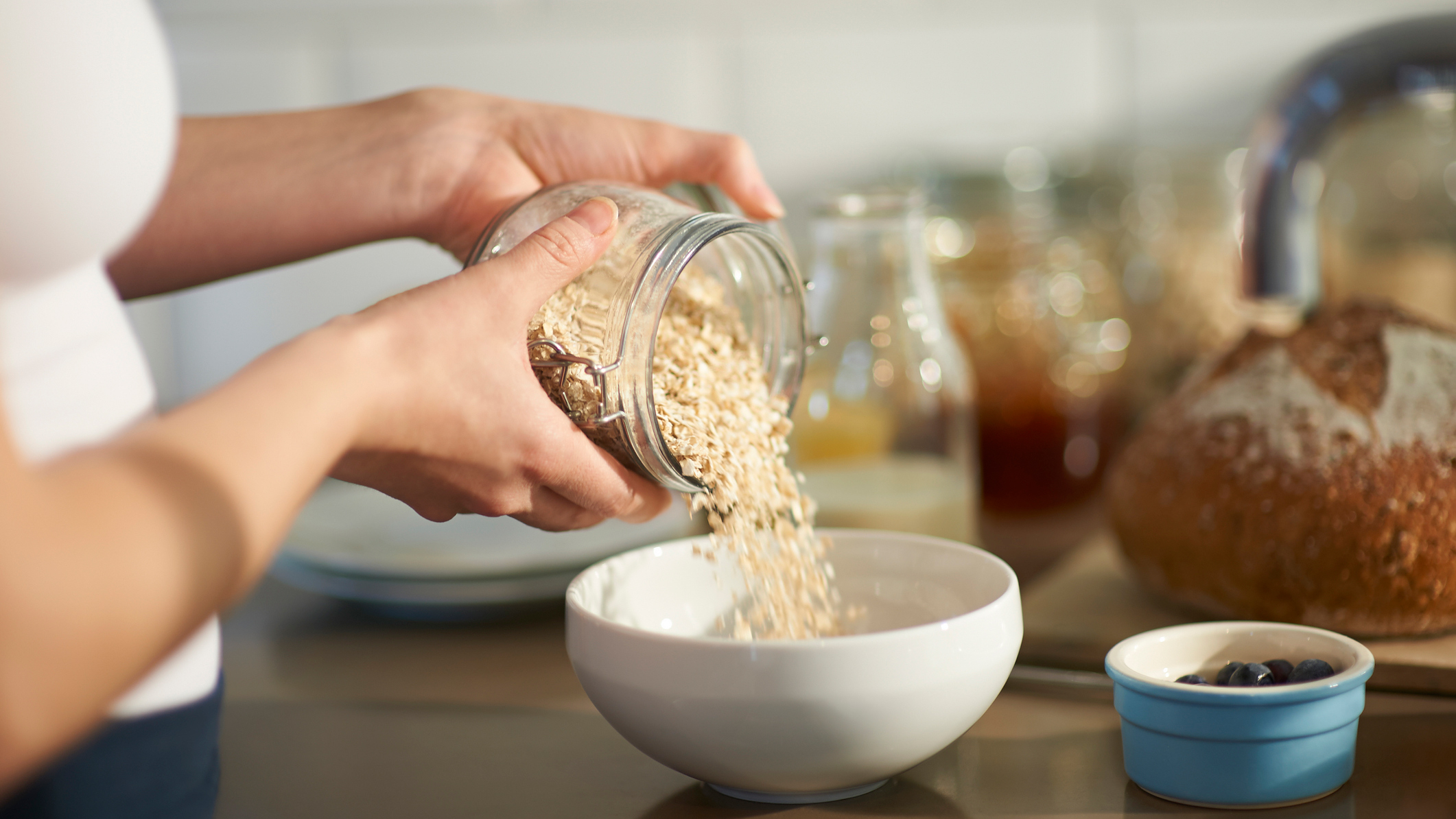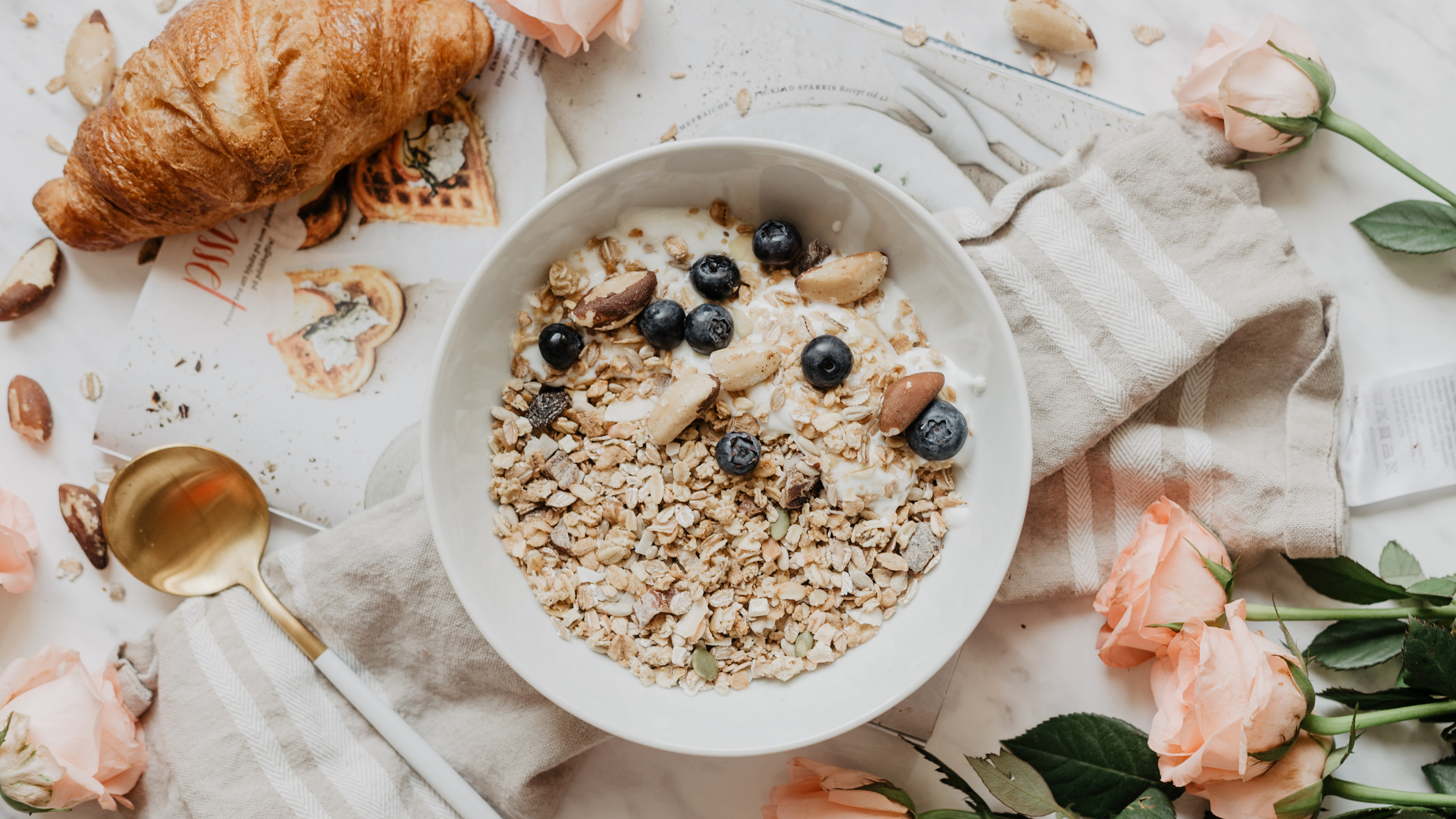Want to maintain a trim waist as you age? Eat wholegrains daily, study says
The study also found they help maintain lower blood pressure and blood sugar levels - key factors in heart disease


Start your week with achievable workout ideas, health tips and wellbeing advice in your inbox.
You are now subscribed
Your newsletter sign-up was successful
We don't often think about carbohydrates in terms of losing weight - instead, we often associate them with weight gain, as they're the macronutrient most closely tied to our blood sugar levels.
Indeed, many of the entries on our list of the best protein powder for weight loss market themselves on how few carbohydrates a portion of powder carries.
Although high-GI "white" carbs like potatoes, white bread and pasta can cause us to gain weight, we know that whole-grain foods like oats, barley, wholemeal bread, corn and quinoa release energy into our bodies more slowly than their processed "white" counterparts, according to Harvard School of Public Health.
However according to a recent study, whole grains are also extremely beneficial when it comes to maintaining a healthy weight and other markers of good health - especially as we age.
Research from Tufts University found middle-aged and older study participants who ate more servings of whole grains were more likely to have small increases in waist size, blood pressure and blood sugar levels as they got older. Conversely, those who ate fewer portions of whole grains tended to see more drastic increases in these future markers of heart disease.
Nicola McKeown, senior and corresponding author, said: "Our findings suggest that eating whole-grain foods as part of a healthy diet delivers health benefits beyond just helping us lose or maintain weight as we age. In fact, these data suggest that people who eat more whole grains are better able to maintain their blood sugar and blood pressure over time."

This is likely because whole grains are naturally high in fiber. An increased intake in fiber increases our satiety (the term for feeling full), keeping us feeling full and satisfied. This is absolutely key for weight loss: we don't often realize how our appetites are affected by what we're eating. High salt and sugar levels can trigger you to eat more, while high fiber contents can increase your satiety.
Start your week with achievable workout ideas, health tips and wellbeing advice in your inbox.
The researchers agree. "The presence of dietary fiber in whole grains can have a satiating effect, and the magnesium, potassium, and antioxidants may contribute to lowering blood pressure. Soluble fiber in particular may have a beneficial effect on post-meal blood sugar spikes."
Opting for whole grains over high-GI white carbs can help you power your next gym session by providing you with lots of energy while curbing your appetite, a powerful combination for delaying weight gain. All you need now are the best exercises for weight loss to keep that spare tire at bay.
Matt Evans is an experienced health and fitness journalist and is currently Fitness and Wellbeing Editor at TechRadar, covering all things exercise and nutrition on Fit&Well's tech-focused sister site. Matt originally discovered exercise through martial arts: he holds a black belt in Karate and remains a keen runner, gym-goer, and infrequent yogi. His top fitness tip? Stretch.
